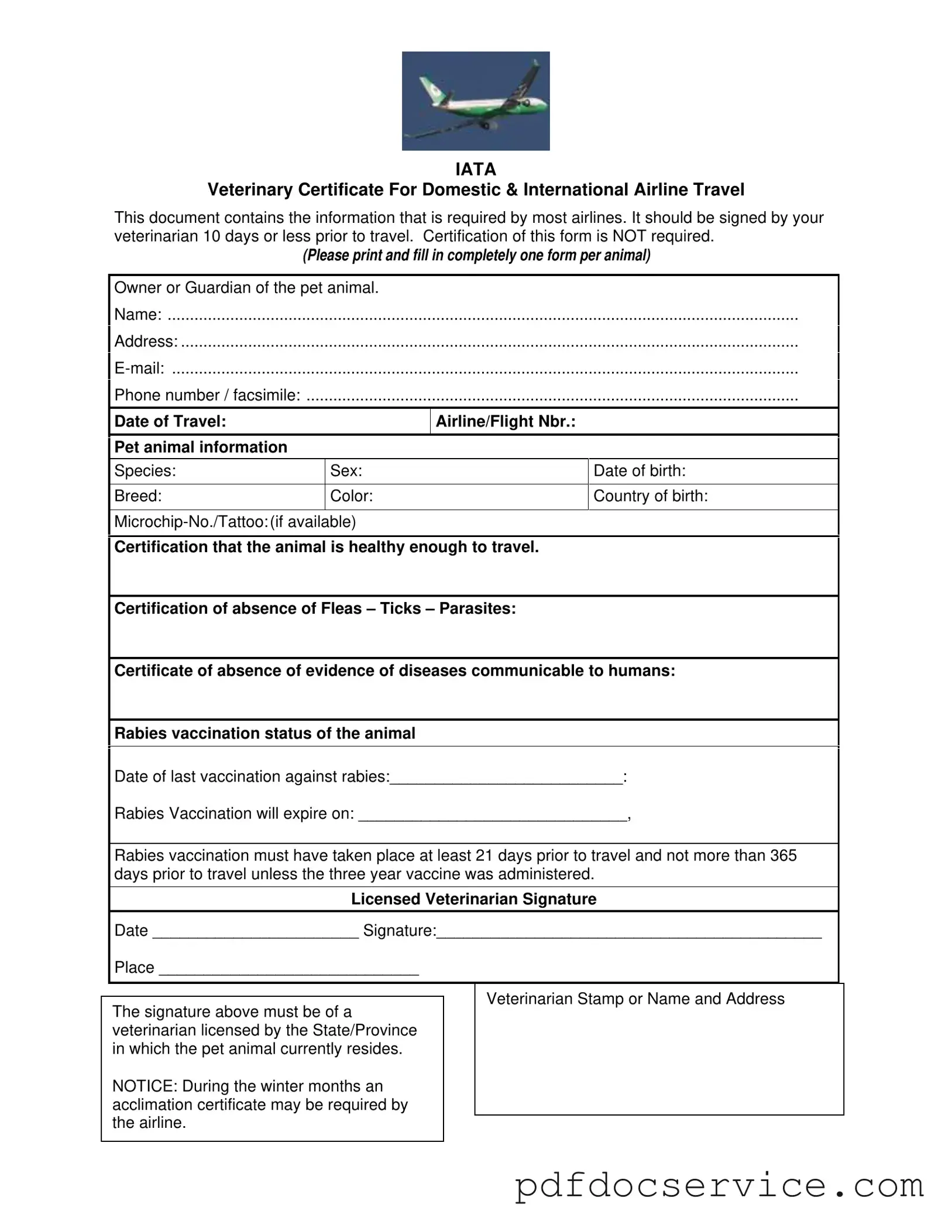Fill Your Veterinary Certificate Travel Form
The Veterinary Certificate Travel form is an essential document for pet owners planning to travel with their animals, whether domestically or internationally. This form includes important health information required by most airlines and must be signed by a licensed veterinarian within 10 days of travel. Completing this form accurately ensures a smoother travel experience for both you and your pet.
Open Veterinary Certificate Travel Editor

Fill Your Veterinary Certificate Travel Form
Open Veterinary Certificate Travel Editor

Open Veterinary Certificate Travel Editor
or
Get Veterinary Certificate Travel PDF
Finish the form now and be done
Finish Veterinary Certificate Travel online using simple edit, save, and download steps.